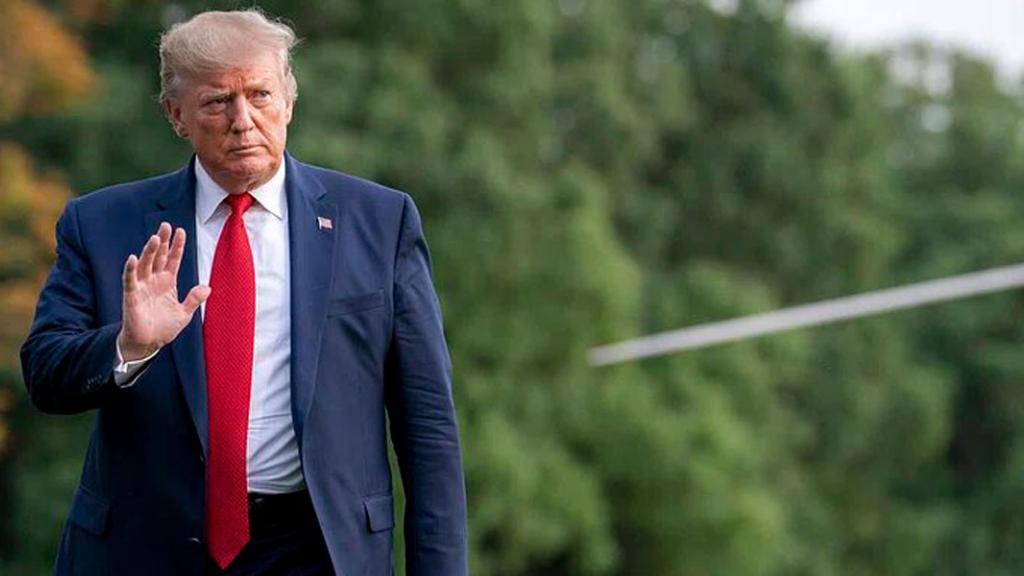Boris Kagarlitsky: Trump’s uncertain foreign policy

First published in Russian at Rabkor. Translation by Aleksandra Zobova, which was edited by LINKS International Journal of Socialist Renewal for clarity.
A new US administration is always global news. The world awaited George W Bush’s arrival at the White House with fears that came to be confirmed, while Barack Obama’s election was accompanied by hopes that were not fulfilled. But never before has a new occupant in the Oval Office been observed with such confusion and bewilderment. No one quite knows what to expect of Donald Trump’s presidency. Which is only natural, as he himself does not know.
This eccentric elderly billionaire has returned to power with a set of populist slogans that sound threatening enough to scare US liberals, but give absolutely no clue as to the priorities and strategies of his foreign policy. Yes, Trump intends to fight the influx of immigrants from Latin America, as well as Chinese competition in the domestic and global markets. But these priorities are clearly not enough for a global superpower and world hegemon, which the US still remains.
The issue is that Trump’s rise has been accompanied by a unique ideological crisis, in which all the usual principles of US politics are being called into question. For decades, there was a bipartisan consensus in Washington regarding basic values and priorities when it came to foreign policy. Of course, there were arguments, occasionally quite heated ones, but these concerned tactical questions, not strategic ones. The strategic principles that successive administrations adhered to (regarding Europe, the former Soviet Union, Russia, Latin America, Middle East, etc) were perceived as an objective reflection of national interests. Importantly, it was not only the governing elite, but US society, that shared this vision.
The exception, of course, was the left, which harshly criticised US intervention in any part of the world. The problem was that they criticised US policy from the point of view of its victims, as if they themselves were on the outside, without offering either their own alternative vision of national interests or a strategy that could be implemented in practice. As a result, the left became further marginalised and had zero influence on foreign policy discussions.
The situation with Trump is brand new. He publicly questions generally accepted strategic principles (for instance, North Atlantic solidarity), but offers no coherent alternative. He is alien both to the bourgeois morality of the government elite and critical morality of the left. The US must be “great” again, but it is unclear what this slogan really means: make the state great or simply return to some “great” time in the past.
How will US foreign policy change in practical terms? As strange as it seems, the changes may end up not being so significant. In a situation where goals, values and priorities seem unclear, the State Department’s apparatus and the Pentagon, like any bureaucracy, will operate by inertia. There might be some curveballs caused by the personal interference of an absolutely incompetent president. But it is more likely that the resulting political course will be steered in a usual fashion.
Does this mean that the uncertainty generated by Trump will not affect international relations? No, it will — and quite significantly. But it will not so much affect the actions of the US as the behaviour of other actors. In uncertain times, some become highly cautious, others try testing boundaries, others again seek to establish their own rules. This is likely to create the conditions for change.
The ceasefire between Israel and Hamas, which did not suit either party, is a direct consequence of this new uncertainty. It is clear that Israel is afraid of the US leaving the Middle East, while the Islamists dream of such a scenario. But as different as their approaches are, the two sides of the conflict were forced to act in the same manner. Hamas leaders choose not to provoke the new administration; better for them to let the conflict fade from memory for now and keep a low profile. Israel, in turn, realised that if it did not give Trump this present in time for his inauguration, the country might fall out of grace with Trump. So the two hostile parties negotiated unwillingly, glancing back not as much at each other as at the unpredictable Big Brother in Washington, who presumably enjoys this kind of arrangement.
It is far from clear that changes will necessarily be for the better, but the spontaneous process of realigning international relations is imminent. Moreover, this is most likely to be just one of the dimensions of the global systemic crisis. As for the US, I cannot help but think of a bull in a china shop: even if it stands still, its presence is impossible to ignore.